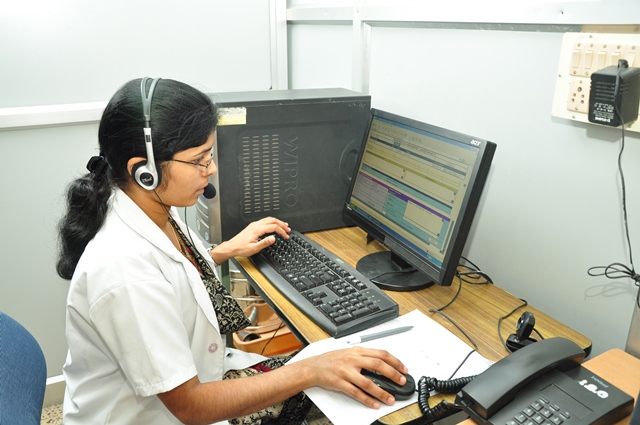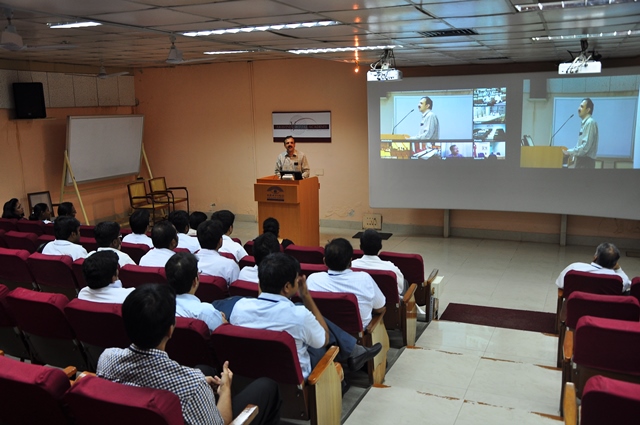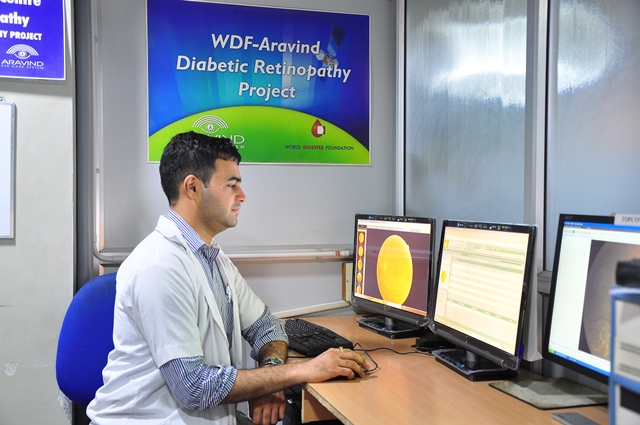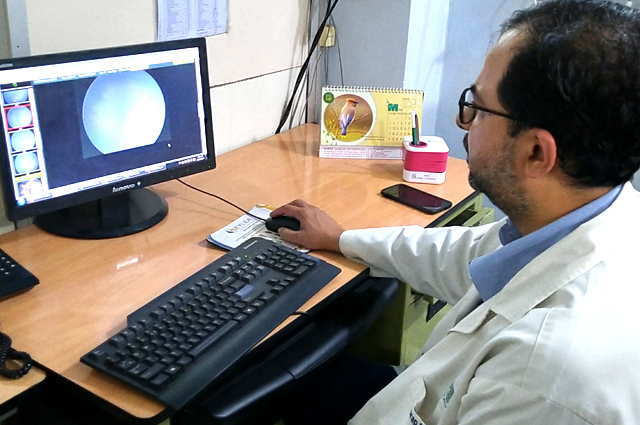Tele-Ophthalmology at Aravind
Aravind tele-ophthalmology network was launched in 2002 with support from ORBIS and Acumen Fund for consultation and training. Since then, tele-medicine link has been established between various Aravind Eye Hospitals. It is now being used regularly and extensively for patient care as well as educational purposes. The use of tele-ophthalmology in patient care has helped reduce disparities by providing remote, low-cost screening tests such as screening for diabetic retinopathy and Retinopatht of Prematurity.

Vision Centres
Vision Centres are permanent eye care facilities in rural or semi-rural areas. They are managed by well-trained ophthalmic technicians. Teleophthalmology is effectively made use of in these centres which allows patients to consult ophthalmologists in the base hospital and avail treatment.

Virtual Academy
Tele-ophthalmology platform is used for several educational interactions including grand rounds, journal clubs. Over 500 videoconferencing sessions are being conducted in this regard every year.

Tele Consultation for Diabetic Retinopathy
Aravind works with various diabetes care centres to screen diabetic retinopathy cases through teleconsultation with the help of Aravind Diabetic Retinopathy Evaluation Software (ADRES). Fundus image of the patient with diabetes is captured at the diabetes clinic using a fundus camera which is sent immediately to the Aravind Eye Hospital, where a retina specialist or a trained grader reviews the images and sends a report back regarding the presence or absence of DR within an hour.

Tele Consultation for RoP
Currently, screening for Retinopathy of Prematurity and its management is happening sporadically in the country. It is non-existent in rural areas and in the urban areas, where it is available, the accessibility is not uniform. Often children are brought to the hospital at stages 4 and 5, at which point, it is beyond the scope of restoring the vision. Aravind deploys tele-ophthalmology to effectively address this issue. Centres at Coimbatore, Tirunelveli and Madurai have initiated a project to screen babies for the disease in the underserved and rural areas by a trained technician. Using a retinal camera, babies with this disease will be identified in real time by transmitting the retinal images to a remote ROP expert. Necessary intervention is also provided.



